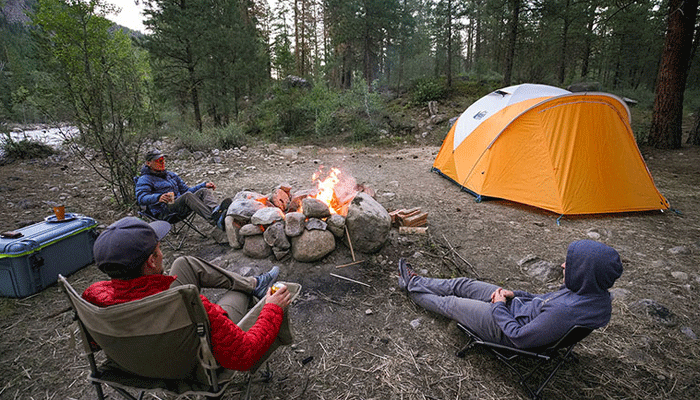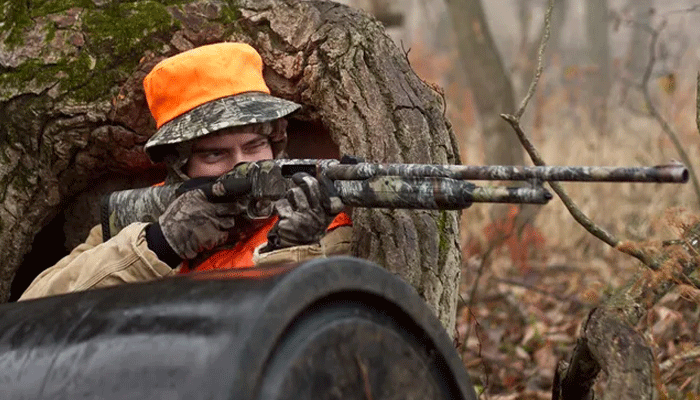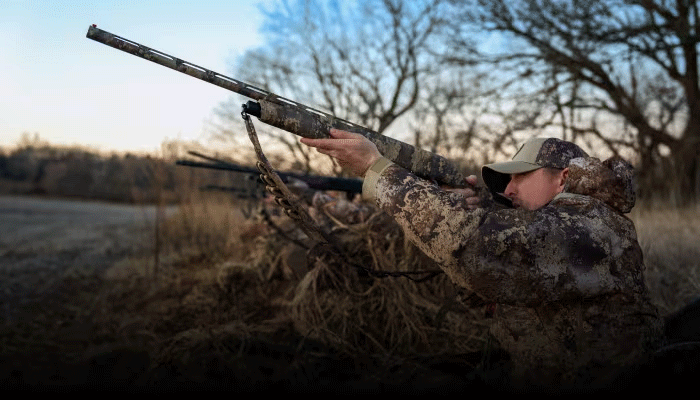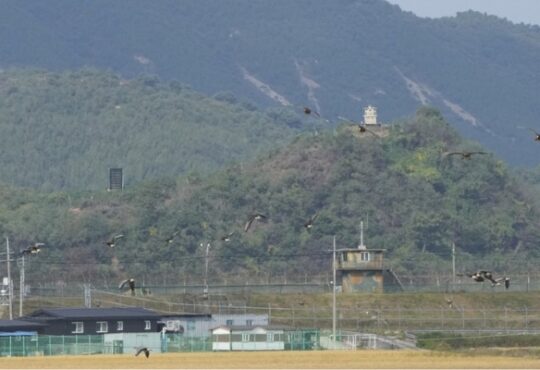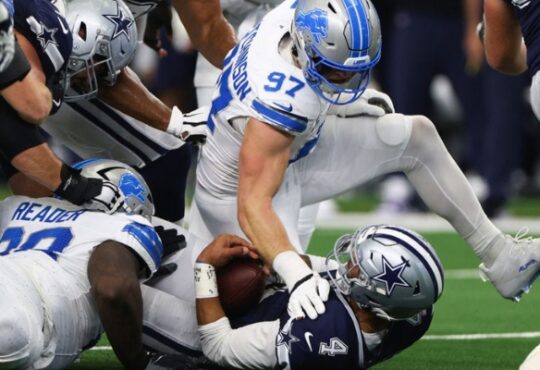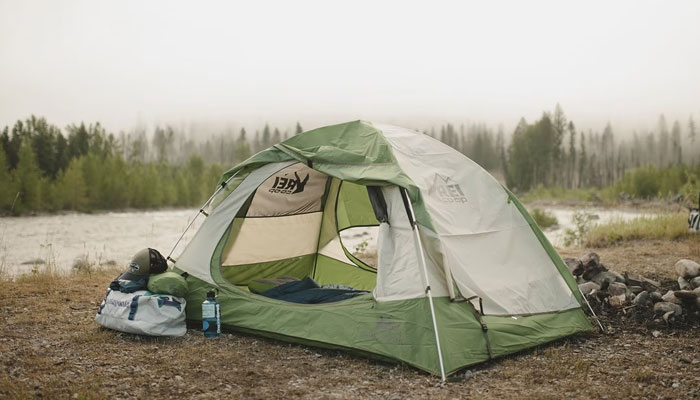
Camping can be a fun and exciting way to spend time outdoors, but choosing the right tent is crucial to having a comfortable and safe experience. When selecting the best camping tents, consider factors such as size, weight, weather resistance, and ease of setup. A tent that is too small or too heavy can make for a miserable trip, while a tent that is not weather-resistant can be dangerous in inclement weather. Look for tents made of durable materials, with good ventilation and waterproofing, and make sure to practice setting it up before heading out on your trip.
Camping Tents Near You
If you are looking for a place to pitch your tent and enjoy the outdoors, you have many options to choose from. Here are some of the best camping sites near you:
• The Dyrt: This is a camping platform that has the most campgrounds, reviews, and tips. You can reserve campgrounds for tents, RVs, cabins, and glamping or find free camping. The Dyrt has it all.
• KOA: This is a network of campgrounds that offer tent sites with level grounds, access to hot showers and bathrooms, and other amenities. You can also choose premium tent sites or KOA Patio® tent sites for more comfort and convenience.
• Pitchup: This is a website that helps you find and book a campsite near you. You can filter by pitch types, site facilities, location, and availability. You can also find campsites that are dog-friendly, family-friendly or have luxury features.
• Tentrr: This is a service that connects you with private landowners who offer spacious tent camps and fully set up campsites. You can enjoy camping on private land or state parks, with all the essentials provided.
• Campsites: This is a website that lets you search for the best camping sites near you. You can browse by location, type of camping, or special offers. You can also find campsites that are suitable for glamping, holiday parks, or romantic getaways.
What Is the Best Camping Tent Made?
When it comes to camping, having a high-quality tent is essential to ensure a comfortable and safe experience. With so many options on the market, it can be difficult to determine which tent is the best. However, one tent stands out as a top performer: the Big Agnes Copper Spur HV UL2.
The Big Agnes Copper Spur HV UL2 is a two-person tent that is lightweight and easy to set up. It is made with high-quality materials, including ripstop nylon and DAC Featherlite poles, which make it durable and resistant to wear and tear. The tent also has a unique design that maximizes interior space, providing ample room for two people and their gear.
Another standout feature of the Big Agnes Copper Spur HV UL2 is its weather resistance. The tent is designed with a waterproof rainfly and taped seams, which helps to keep the interior dry in even the heaviest rain. Additionally, the tent has excellent ventilation, with multiple mesh windows and a vent on the rainfly that helps to regulate temperature and prevent condensation buildup.
Overall, the Big Agnes Copper Spur HV UL2 is the best camping tent on the market due to its high-quality materials, innovative design, and superior weather resistance. While it may be more expensive than some other options, the investment is worth it for a reliable and comfortable camping experience.
- Which Brand Tent Is the Best?
Choosing the best tent brand depends on your specific needs and preferences. Some popular brands to consider include REI, Big Agnes, Marmot, and The North Face. It’s important to consider factors such as durability, size, weight, and features when making a decision. Researching and reading reviews can also help you make an informed choice.
- How Can You Tell if a Tent Is Good Quality?
To determine the quality of a tent, examine the material it’s made of, the stitching, and the zippers. Look for tents made of durable, waterproof materials, with reinforced seams and high-quality zippers. Check for features like double-stitched seams, guy lines, and reinforced corners. A good quality tent should also be easy to set up and take down.
- Are Blackout Tents Better?
Blackout tents can be a great option for those who prefer complete darkness while sleeping. These tents are designed to block out all external light and create a pitch-black environment. This can be particularly helpful for those who struggle with sleeping in bright or noisy environments. However, they may not be appropriate for everyone.
- What Is the Most Stable Tent Shape?
The most stable tent shape is generally considered to be the geodesic dome, due to its evenly distributed weight and triangular supports. However, other tent shapes such as A-frame and tunnel tents can also be stable depending on factors such as the materials used and the weather conditions.
- How Do You Waterproof a Tent?
To waterproof a tent, you can apply a waterproofing spray or solution to the exterior of the tent. Make sure to focus on the seams and any areas where water may collect. You can also use a seam sealer to prevent water from seeping through the stitching. Allow the tent to dry completely before use.
- What Is the Strongest Material for a Tent?
The strongest material for a tent is typically a high-denier nylon or polyester fabric, coated with a waterproof and UV-resistant material. Some tents also incorporate ripstop technology and reinforced stitching for added durability. In addition, tent poles are often made of lightweight yet strong materials such as aluminum or carbon fiber.
- What Tent Does the US Military Use?
The United States Military uses a variety of tents depending on the situation. The most common tent used is the Temper Tent, which is designed to withstand extreme weather conditions. The Military also uses other tents like the General Purpose Tent, the Lightweight Maintenance Enclosure, and the Modular General Purpose Tent.
- What Is the Best Tent for Extreme Weather?
The best tent for extreme weather conditions is one that is durable, waterproof, and able to withstand high winds. Look for tents with sturdy poles, reinforced seams, and a rainfly that covers the entire tent. Some good options include the Hilleberg Jannu, NEMO Chogori, and Black Diamond Eldorado.
- What Brand Tents Are Made in the USA?
Several brands of tents are made in the USA, including Eureka, Kelty, White Duck Outdoors, and Big Agnes. These brands are known for their high quality and durability, and many outdoor enthusiasts prefer to support American-made products. Additionally, purchasing tents made in the USA can help support local economies and reduce the carbon footprint associated with overseas shipping.
White Duck Outdoors is a US-based company that produces high-quality canvas tents, teepees, and accessories. All of their products are handcrafted in the USA using locally sourced materials. With a focus on durability and sustainability, White Duck Outdoors’ tents are built to last and withstand the elements. Use the White Duck Outdoors Coupon Code to get 60% off your purchase.
How Much Does a Good Tent Cost?
The cost of a good tent can vary greatly depending on the size, quality, and features that you are looking for. Generally speaking, a good quality tent can range from around $100 to $500 or more. However, it is important to note that a higher price does not always equate to better quality.
When shopping for a tent, it is important to consider your specific needs and the conditions you will be camping in. For example, if you will be camping in harsh weather conditions, you may want to invest in a more expensive tent that is designed to withstand strong winds and heavy rain.
Another element to consider is the tent’s size. A larger tent will typically cost more than a smaller tent, so it is important to determine how many people will be using the tent and how much space you will need.
In addition to size and quality, there are also additional features that can impact the cost of a tent. For example, a tent with a built-in rainfly or footprint will typically cost more than a basic tent without these features.
While it may be tempting to go for the cheapest option available, investing in a good quality tent can make all the difference in the comfort and safety of your camping experience. It is important to do your research and find a tent that will meet your specific needs and budget.
- What Is the Best Cheap Tent?
The best cheap tent is one that balances affordability with quality. Some good options include the Coleman Sundome Tent, the ALPS Mountaineering Meramac Tent, and the Marmot Limelight Tent. It’s important to consider the tent’s size, weather resistance, and ease of setup when making a decision.
- What Fits in a 20×20 Tent?
A 20×20 tent can accommodate up to 64 guests seated at round tables, or up to 100 guests seated in rows for a ceremony. It can also fit a dance floor, a DJ booth, and a bar. Additionally, you can add decorations, lighting, and heating or cooling systems.
- What Is the Most Popular Camping Tent Size?
The most popular camping tent size is typically a four to six-person tent. This size is ideal for small families and groups of friends. It provides enough space to comfortably sleep and store gear without being too bulky or difficult to set up. However, the best tent size ultimately depends on individual needs and preferences.
- How Do You Keep a Tent Warm at Night?
To keep a tent warm at night, you can start by selecting a suitable location and using a high-quality tent with a proper rainfly. Additionally, you can insulate the floor with foam mats or rugs, use a warm sleeping bag, and wear appropriate clothing. Lastly, you can also use a portable heater or heat source, but exercise caution and follow safety guidelines.
- Are Tents 100 Waterproof?
No, not all tents are 100% waterproof. However, many tents are made with waterproof materials and have features such as taped seams and rain flies to help keep the interior dry. It is important to check the waterproof rating and features of a tent before purchasing, especially if planning to camp in wet or rainy conditions.
- What Is Camping Without a Tent Called?
Camping without a tent is commonly known as “tarp camping” or “tentless camping”. This involves using a tarp or bivy sack as a shelter instead of a traditional tent. It can provide a more minimalist and immersive camping experience, but it also requires more planning and preparation to ensure a comfortable and safe trip.
- Is a 2-Person Tent Big Enough?
A 2-person tent can be big enough for some people, depending on their needs and preferences. It can provide a cozy and intimate sleeping space for two individuals, but may not offer much room for additional gear or activities. Consider the size of the tent carefully before making a purchase.
- What Size Tent Do I Need for 100 People?
To comfortably accommodate 100 people in a tent, you will need a minimum space of 1,500 square feet. This can be achieved by renting a 40′ x 60′ tent. However, if you plan on including a dance floor, buffet tables, or a stage, you may need a larger tent.
- How Big Should a Tent Be for 4 People?
For a cozy camping adventure, a 4-person tent should ideally provide a minimum floor area of 64 square feet (6 square meters). If extra space for gear or activities is desired, target a tent with at least 80 square feet (7.5 square meters). Remember, sizes may vary among manufacturers, so it’s crucial to review specifications before making a purchase. Explore potential savings with Sports & Outdoors Discount Code for a budget-friendly camping gear purchase.
What Size Camping Tent Do I Need?
Choosing the right size camping tent is crucial to ensure a comfortable and enjoyable camping experience. The size of the tent you need depends on a few factors such as the number of people who will be sleeping in the tent, the amount of gear you plan to store inside, and your personal comfort requirements.
For solo camping, a 1-person tent should suffice. However, if you plan to camp with a partner, a 2-person tent is recommended. If you’re camping with a group, consider a larger tent that can accommodate everyone comfortably. A 4-person tent is a good option for a group of 3-4 people, while a 6-person tent can comfortably accommodate a group of 4-6 people.
Another factor to consider when choosing a tent is the amount of gear you plan to store inside. If you’re camping in colder weather and need to bring additional gear such as sleeping bags, blankets, or extra clothing, you may want to consider a larger tent that can accommodate this gear. Additionally, if you plan to use inflatable mattresses or other bulky gear, you may need extra space.
Lastly, consider your personal comfort requirements. If you like to have more space to move around or if you’re claustrophobic, you may want to opt for a larger tent than the recommended size for your group.
In summary, when choosing a camping tent, consider the number of people, amount of gear, and personal comfort requirements to determine the appropriate size. With the right size tent, you can enjoy a comfortable and memorable camping experience.
- Is a 10×10 Tent Too Big?
The choice between a 10×10 tent and a larger one depends on your specific needs. A 10×10 tent comfortably accommodates 4-6 people, suitable for small gatherings or camping trips. However, for more significant space requirements or larger groups, opting for a bigger tent may be necessary. It’s essential to consider your intended use and the number of people you plan to accommodate before finalizing your tent size. To make your purchase more economical, explore potential discounts and savings with 4wd Supacentre Discount Codes.
- How Many People Does a 10×10 Camping Tent Fit?
A 10×10 camping tent typically accommodates up to six people, depending on the size of the sleeping bags and the amount of gear stored inside. It may be more comfortable with four people or less, leaving extra space for gear and movement.
- What to Look for When Buying a Tent for Camping?
When buying a tent for camping, it’s important to consider the number of people it needs to accommodate, the weather conditions you’ll be facing, the type of camping you’ll be doing, and the overall quality and durability of the tent. Look for features like waterproofing, ventilation, and ease of setup
- Is a 20×20 Tent Big?
A 20×20 tent can be considered a medium to large-sized tent. It can comfortably accommodate up to 40 people standing or up to 32 people seated for an event. However, the size may vary depending on the type of event and the equipment or furniture that will be placed inside.
- What Is a No-Bake Tent?
A no-bake tent is a type of tent that does not require any baking or heating to set up. It is also called an instant tent because it can be quickly assembled without any complicated procedures. These tents are perfect for those who want to save time and energy while camping or traveling.
- What Size Tent for 75 Guests?
To accommodate 75 guests, it’s recommended to use a tent that’s at least 1,500 square feet in size. This will provide ample space for seating, tables, and a dance floor. Keep in mind that other factors, such as the type of event and weather conditions, may also affect the size of the tent needed.
Are Pop-up Tents Worth It?
Pop-up tents have become increasingly popular in recent years, as they offer a convenient and easy-to-use camping option for anyone who wants to enjoy the great outdoors without all the hassle. But are they worth it? Yes, but it is dependent on your specific needs and preferences.
Pop-up tents offer a notable advantage in their ease of use. Unlike traditional tents that demand a significant amount of time and effort for setup, pop-up tents can be assembled in just a few minutes. This convenience makes them an excellent choice for those who prefer spending more time enjoying their camping adventure and less time on camp setup. Explore potential savings and discounts with Sports & Outdoors Promo Codes for an even more enjoyable camping experience.
Another advantage of pop-up tents is their portability. Most types are lightweight and compact, making them easy to transport and store. This makes them a great option for anyone who wants to take their camping gear with them on the go, whether it’s for a weekend camping trip or a longer adventure.
However, there are some downsides to pop-up tents as well. They are generally not as durable as traditional tents and are more prone to damage from wind and other environmental factors. Additionally, they may not offer as much protection from the elements as traditional tents, which can be a concern if you’re camping in an area with unpredictable weather conditions.
Pop-up tents can be a great option for anyone who wants a convenient and easy-to-use camping option. While they may not be as durable or protective as traditional tents, their portability and ease of use make them a great choice for anyone who wants to spend more time enjoying their camping trip and less time setting up camp.
- What Are the Disadvantages of Tents?
Some of the disadvantages of tents include limited space, exposure to weather conditions, difficulty in setting up and taking down, lack of insulation, and potential for damage or tearing. Additionally, tents may not provide enough privacy or security for some users.
- What Is the Disadvantage of Pop-up Tents?
The main disadvantage of pop-up tents is that they typically offer less space and structural stability compared to traditional tents. They can also be more difficult to pack and set up, requiring practice and patience. Additionally, they may not be as durable or able to withstand harsh weather conditions.
- Do Pop-Up Tents Leak?
Pop-up tents can leak if they are not properly sealed or if the rain is heavy. It is important to choose a tent with a high waterproof rating and to set it up correctly to prevent leaks. Regular maintenance and re-sealing can also help to prolong the life of the tent and prevent leaks.
- Are Campers Safer Than Tents?
When it comes to camping, safety should always take precedence. While both campers and tents can provide a safe and comfortable shelter, campers tend to offer more security and protection from the elements. However, it ultimately depends on personal preference, budget, and the level of comfort and convenience desired.
- Why Is a Pop-up Better Than a Tent?
A pop-up tent is often better than a traditional tent because it is easier and quicker to set up and take down. It also tends to be lighter and more compact, making it easier to transport. Additionally, pop-up tents are often less expensive than traditional tents while still providing adequate shelter for camping trips.
- Do Pop-up Campers Stay Cool in Summer?
Pop-up campers can stay cool in summer if they have proper ventilation and insulation. Many models come with windows, screens, and fans to keep the air flowing and prevent heat buildup. However, it’s important to choose a camper with good insulation and shade to prevent overheating.
- Why Can’t You Touch the Inside of a Tent?
You can touch the inside of a tent, but it’s not recommended as it can damage the waterproof coating and reduce its effectiveness. The coating on the inside of a tent helps to keep you dry by preventing moisture from penetrating through the fabric. Touching it with bare hands can cause oils and dirt to accumulate, compromising the coating.
- Why Is My Tent Wet Inside When Raining?
There are different reasons why your tent may be wet inside when it rains. It could be due to condensation, poor ventilation, or a leak in your tent. To prevent condensation, ensure proper ventilation and avoid cooking inside your tent. Check for leaks and make sure your tent is properly sealed before camping.
- Why Is My Tent Wet in the Morning?
Your tent is wet in the morning due to condensation. As the temperature drops overnight, moisture from your breath, body heat, and the surrounding environment can collect on the inside of your tent. If your tent is not properly ventilated or if there is high humidity, this moisture can accumulate and cause your tent to become damp.
Conclusion
Camping is an exciting outdoor activity, but it can be a nightmare if you don’t have the right gear. A tent is one of the most important camping accessories. However, with so many options in the market, it can be overwhelming to choose the best one for you. To select the best camping tent, consider the size, weight, weather resistance, ease of setup, and material quality. Ensure that the tent you choose is spacious enough to accommodate you and your gear, and it is easy to set up. Additionally, select a tent made of high-quality materials that can withstand different weather conditions.



